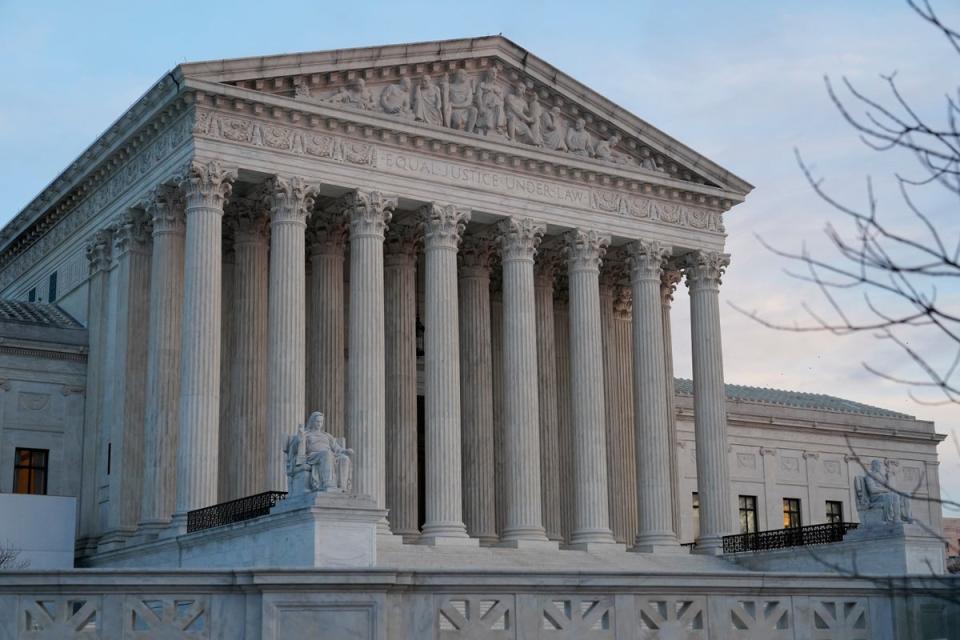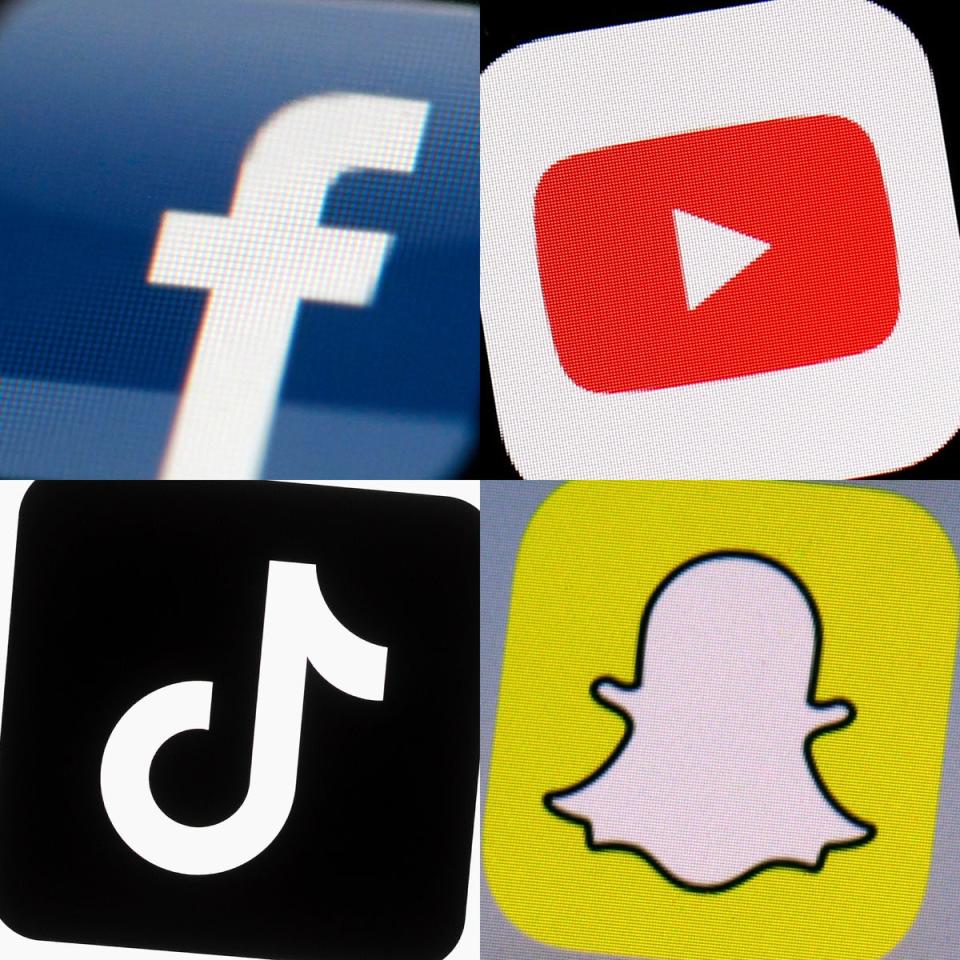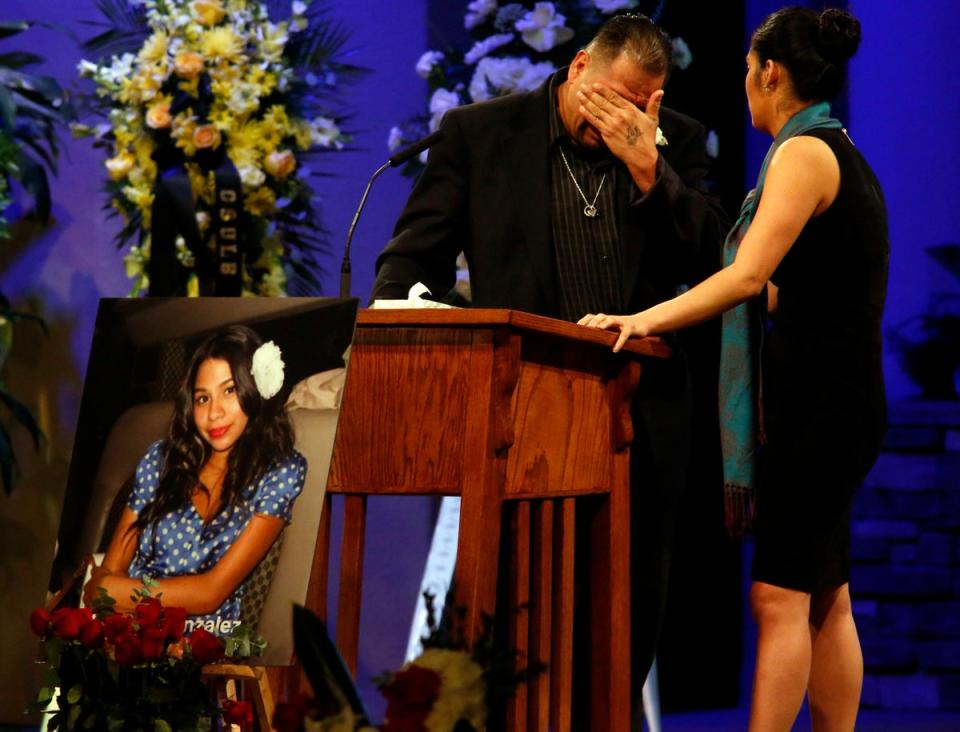How a Supreme Court case against Google could upend the internet

The Supreme Court begins hearing oral arguments in Gonzalez v. Google on Tuesday in a case that legal and tech experts believe could transform the internet.
The case will examine whether tech giants like Facebook, Twitter and Google should be liable for content posted on their platforms.
It has been brought on by the family of Nohemi Gonzalez, a 23-year-old American tourist who was among 130 killed during a terror attack in Paris in 2015.
The lawsuit argues that algorithms on Google-owned YouTube recommended Islamic State propaganda videos that helped the terrorist group recruit and direct trainees.
Currently, internet companies are shielded from being sued due to posts on their website because of section 230 of the 1996 Communications Decency Act.
Section 230 has been credited with allowing tech behemoths to grow unchecked into the largest companies in the world. An adverse ruling against Google could alter the foundations of law governing the internet.
Here’s what to know.
What is Section 230?
Tucked away in the Communications Decency Act are the following 26 words: “No provider or user of an interactive computer service shall be treated as the publisher or speaker of any information provided by another information content provider.”
Section 230, as it’s become shorthanded to, allowed social media platforms and video channels to host objectionable and libelous content without suffering any legal consequences, and has been a pivotal reason for their exponential growth.
Jeff Kosseff, an associate professor in cybersecurity at the US Naval Academy, argued in his 2019 bookThe Twenty-Six Words That Created the Internet, that the provision “facilitated unprecedented freedom of online speech”.
Traditional media companies have long cried foul of Section 230; if a newspaper or digital site slanders an individual or company, they have the right to sue that organisation.
But under Section 230, only the person who posts the problematic content is liable for it.
Experts have warned that major changes to Section 230 would fundamentally alter our relationship with the internet.

The Electronic Frontier Foundation, a digital civil liberties group, contends that any changes to the law would lead internet companies to “intensively filter and censor user speech”.
“This legal and policy framework allows countless niche websites, as well as big platforms like Amazon and Yelp to host user reviews,” the group says.
The foundation states that Section 230 has allowed users to share speech and opinions, “from vast conversational forums like Twitter and Discord, to the comment sections of the smallest newspapers and blogs.”
In its brief to the Supreme Court, Google argued that YouTube’s algorithms “are what make it possible to find the needles in humanity’s largest haystack”.
The Gonzalez’s lawyers countered that there was no denying that content promoted on social media sites had caused “serious harm”.
What is Gonzalez vs Google?
In November 2015, Nohemi Gonzalez, a 23-year-old senior design major at California State University-Long Beach, was studying at Strate School of Design in Sèvres, France.

She was dining out with fellow students at a popular Paris bistro when she was shot and killed by Islamic State terrorists.
Her grief-stricken parents sued Google, claiming that it had violated US law by promoting and recommending Islamic State propaganda videos on YouTube.
The Gonzalez family has been supported by an Israeli legal nonprofit Shurat HaDin, which has stated that it wants to “bankrupt terrorism, one case at a time”.
Lower courts have so far ruled that Section 230 protects YouTube content. The Gonzalez family are taking the argument to the US’s highest court in an effort to challenge the algorithms.
While the 6-3 conservative majority has already made several landmark decisions in 2022, the justices have given little away thus far on how their ideologies could influence tech cases such as Gonzalez v. Google.
It’s expected to be several months before a ruling in Gonzalez v. Google is released.
Other big tech cases await
After legal arguments are heard in Gonzalez v. Google on Tuesday, the nine justices will take up Twitter v. Taamneh on Wednesday.
Victims of five separate terrorist attacks are bringing a civil case against the Twitter, Facebook and Google under the Anti-Terrorism Act.
The case will examine whether tech giants that work to detect and prevent terrorists from using those services “knowingly” provided substantial assistance merely because they could have taken more “meaningful” or “aggressive” action.

 Yahoo Finance
Yahoo Finance 